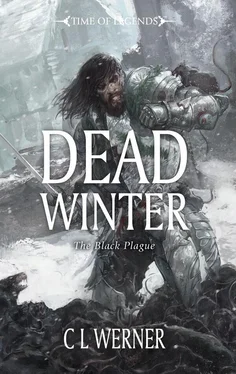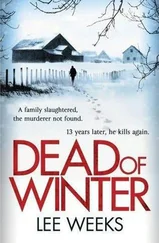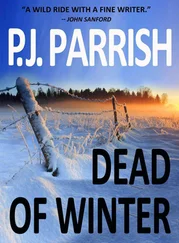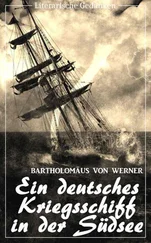C. Werner - Dead Winter
Здесь есть возможность читать онлайн «C. Werner - Dead Winter» весь текст электронной книги совершенно бесплатно (целиком полную версию без сокращений). В некоторых случаях можно слушать аудио, скачать через торрент в формате fb2 и присутствует краткое содержание. Год выпуска: 2012, ISBN: 2012, Издательство: Games Workshop, Жанр: Фэнтези, на английском языке. Описание произведения, (предисловие) а так же отзывы посетителей доступны на портале библиотеки ЛибКат.
- Название:Dead Winter
- Автор:
- Издательство:Games Workshop
- Жанр:
- Год:2012
- ISBN:9781849701518
- Рейтинг книги:4 / 5. Голосов: 1
-
Избранное:Добавить в избранное
- Отзывы:
-
Ваша оценка:
- 80
- 1
- 2
- 3
- 4
- 5
Dead Winter: краткое содержание, описание и аннотация
Предлагаем к чтению аннотацию, описание, краткое содержание или предисловие (зависит от того, что написал сам автор книги «Dead Winter»). Если вы не нашли необходимую информацию о книге — напишите в комментариях, мы постараемся отыскать её.
Dead Winter — читать онлайн бесплатно полную книгу (весь текст) целиком
Ниже представлен текст книги, разбитый по страницам. Система сохранения места последней прочитанной страницы, позволяет с удобством читать онлайн бесплатно книгу «Dead Winter», без необходимости каждый раз заново искать на чём Вы остановились. Поставьте закладку, и сможете в любой момент перейти на страницу, на которой закончили чтение.
Интервал:
Закладка:
Stealing through the brooding halls of the palace, Mandred avoided the most populous corridors. Using side passages and circling through empty chambers, he avoided encountering the small army of peasants who maintained the Graf’s household or the armed guards who saw to the royal family’s protection. The only one who noted his passing was Woten, the hoary grey wolfhound lounging in one of the banquet halls, but the dog was more interested in the warmth of a blazing hearth than Mandred’s activities. A wag of the tail was all the notice he paid the boy.
Creeping along the heavy, stone-walled corridors, Mandred reached his destination, a little waiting room adjoining the Graf’s council chamber. There was a secret to the room, one which only a few people knew. A painting set into the wall could be tilted outwards upon a hinge once a hidden catch had been unlocked. Behind the painting was a pane of cloudy glass. It corresponded with a large mirror in the council chamber, but the reflective surface was only upon the outside. From the waiting room, a person could peer through the glass and observe whatever went on in the other room. The whole thing was dwarf-work, as attested by the sharp runes carved into the edge of the glass. Mandred wondered about the trick behind the spyhole but had long ago given up on puzzling it out for himself. Dwarfcraft or witchcraft, it was enough that the trick worked.
Gazing into the council chamber, Mandred could see twenty or so of the city’s noblemen seated around the circumference of the Fauschlagstein, a great stone table carved from a single block of Ulricsberg granite. Among the city’s notables, he could see the glowering visage of Grand Master Arno Warsitz, his great red beard drooping against his chest; the stern countenance of Ar-Ulric, High Priest of the White Wolf, his wolfskin robes matching his snowy hair and the milky eye staring blindly from the right side of his face; Thane Hardin Gunarsson, chief of Middenheim’s dwarfs, his wizened face pulled into a perpetual frown. Beside such grim councillors, Graf Gunthar looked cheerful and vibrant, his dark hair swept back, his long houppelande of ribbed kersey flowing about him, the dark blue of the loose gown contrasting with the sombre blacks and russets of his council.
Any impression of cheer, however, did not reach to the Graf’s eyes. They were ringed by dark circles, their sapphire depths haunted by worry.
‘We are agreed then,’ Graf Gunthar told his councillors. ‘Middenheim will not be weakened to placate the diktats of a corrupt Emperor. We will not dismiss our soldiers and we will not empty the city treasury to pay an unjust tax.’
The statement brought nods of affirmation from the assembled nobles. Thane Hardin stroked his blond beard and scowled at the gold-grubbing effrontery of the manling Emperor. Even the worst gold-crazed dwarf wouldn’t have dreamed up such a crooked scheme as Boris’s plot to tax the human Dienstleute out of existence and leave his Empire disarmed and defenceless.
Graf Gunthar paced about the table, studying each of his advisors in turn. ‘You are all aware what defying Emperor Boris could mean. He might raise an army to seize what he feels is owed to him.’
‘Let him try,’ growled Grand Master Arno, clenching his fist. ‘The Drak-rat will never breach the Ulricsberg.’
‘He wouldn’t have to,’ cautioned Viscount von Vogelthal, the Graf’s chamberlain. ‘He could simply lay siege to the mountain and cut us off from the rest of Middenland. Whatever the quality of our warriors, Emperor Boris can field more than us.’
Graf Gunthar nodded, agreeing with the chamberlain’s observation. ‘That is why I have decided that we must lay stores against any punitive actions the Emperor might take. We must levy the farms and freeholds around the Ulricsberg, double their harvest tax. I want the storehouses full to bursting before winter sets in. We can depend upon Emperor Boris to wait until the spring before mounting a campaign in the north, but every day after the thaw he stays in the Reikland will be a boon from Ulric.’
‘The raugrafs and landgraves won’t appreciate having their obligations increased,’ objected Duke Schneidereit.
‘We face an emergency,’ Graf Gunthar snarled at the duke. ‘If we are to survive, every man must make sacrifices.’ He stopped pacing about the stone table and rested his hands against the cool granite surface. ‘To that end, I have issued orders that the Sudgarten and Konigsgarten are to be dug up. The ground is to be used as farmland. Whatever seed we can spare is to be sown at once, before the first frost.’ He sighed as he looked across the worried faces of his advisors. ‘It might not help us if Emperor Boris strikes fast, but if he delays, we may just bring in a crop before his army lays siege to the Ulricsberg.’
Many of the nobles nodded grimly at the pragmatic decision. They would grieve for the loss of the parks with their colourful shrubberies and flowers, but they would grieve even more if starvation descended upon their city.
‘There is another concern we should consider, your highness.’ All eyes turned upon the aged Ar-Ulric when the high priest spoke. He was much more than simply another of the Graf’s advisors. As the chief authority of the cult of Ulric, he was the most powerful priest in Middenheim, venerated by Ulricans across the Empire as the representative of their god upon the mortal coil.
Ar-Ulric rose from his chair, his one-eyed gaze sweeping across the chamber. ‘There is plague in the outlying provinces, in Sylvania and Stirland. If the disease spreads beyond their borders, into Talabecland and Hochland, or our own Middenland, then we must be prepared for refugees.’
‘We have already taken in three thousand Westerlanders,’ grumbled Viscount von Vogelthal. ‘And another two thousand Drakwalders. The city can’t hold any more squatters.’
‘Nor will it,’ Graf Gunthar declared. ‘We must protect Middenheim. Accepting those fleeing from enemies is one thing, but there is a point when mercy becomes irresponsible.’ He hesitated, collecting his thoughts, weighing the responsibility for his decision. ‘No, Your Eminence,’ he told Ar-Ulric, ‘Middenheim will not harbour refugees from the plague. Any trying to climb the causeways, any setting one foot upon the Ulricsberg, must be cut down like dogs. Anyone seeking entry into the city must be sequestered at the foot of the mountain.’
Ar-Ulric bowed his head. ‘If that is your decree, then do I have your leave to inform the Temple of Shallya of this decision? The priestesses will want to know and make their plans accordingly.’
‘You have my leave,’ Graf Gunthar said. ‘But you may also warn the temple that anyone who attends refugees will not be permitted back into the city. I will make no exceptions. Not even for a priestess.’
Shocked by the cruelty of his father’s decree, Mandred drew away from the spyhole, swinging the hinged painting back into place. It sickened him to think his father could be so unfeeling, to abandon the sick and the desperate, to turn his back upon those who needed help.
He had always admired his father’s wisdom, but wisdom was nothing without compassion.
When he was Graf, Mandred swore he would be both wise and compassionate. He wouldn’t be a cowardly tyrant like his father.
Altdorf
Kaldezeit, 1111
The wind blowing across the Reik into Altdorf had a cold sting to it, a reminder to all who felt it that the autumn was swiftly fading and that Ulric was already spreading his claws to claim the world. It would be a hard winter for the capital. Frightful rumours of poor harvests in Stirland and Sylvania had been given some veracity when the nobles of Pfeildorf and Wissenburg began to complain to the Emperor about the almost negligible amount of wheat and millet being exported down the river. Most of what trade had emerged from the provinces had gone no farther than Mordheim and Talabheim. Solland and Wissenland, their agriculture devoted principally to raising sheep and making wine, had become desperate to stock supplies for the winter. Food prices in Nuln had soared, diverting the harvest of many a Reikland lord southwards, away from the traditional markets in Altdorf.
Читать дальшеИнтервал:
Закладка:
Похожие книги на «Dead Winter»
Представляем Вашему вниманию похожие книги на «Dead Winter» списком для выбора. Мы отобрали схожую по названию и смыслу литературу в надежде предоставить читателям больше вариантов отыскать новые, интересные, ещё непрочитанные произведения.
Обсуждение, отзывы о книге «Dead Winter» и просто собственные мнения читателей. Оставьте ваши комментарии, напишите, что Вы думаете о произведении, его смысле или главных героях. Укажите что конкретно понравилось, а что нет, и почему Вы так считаете.











